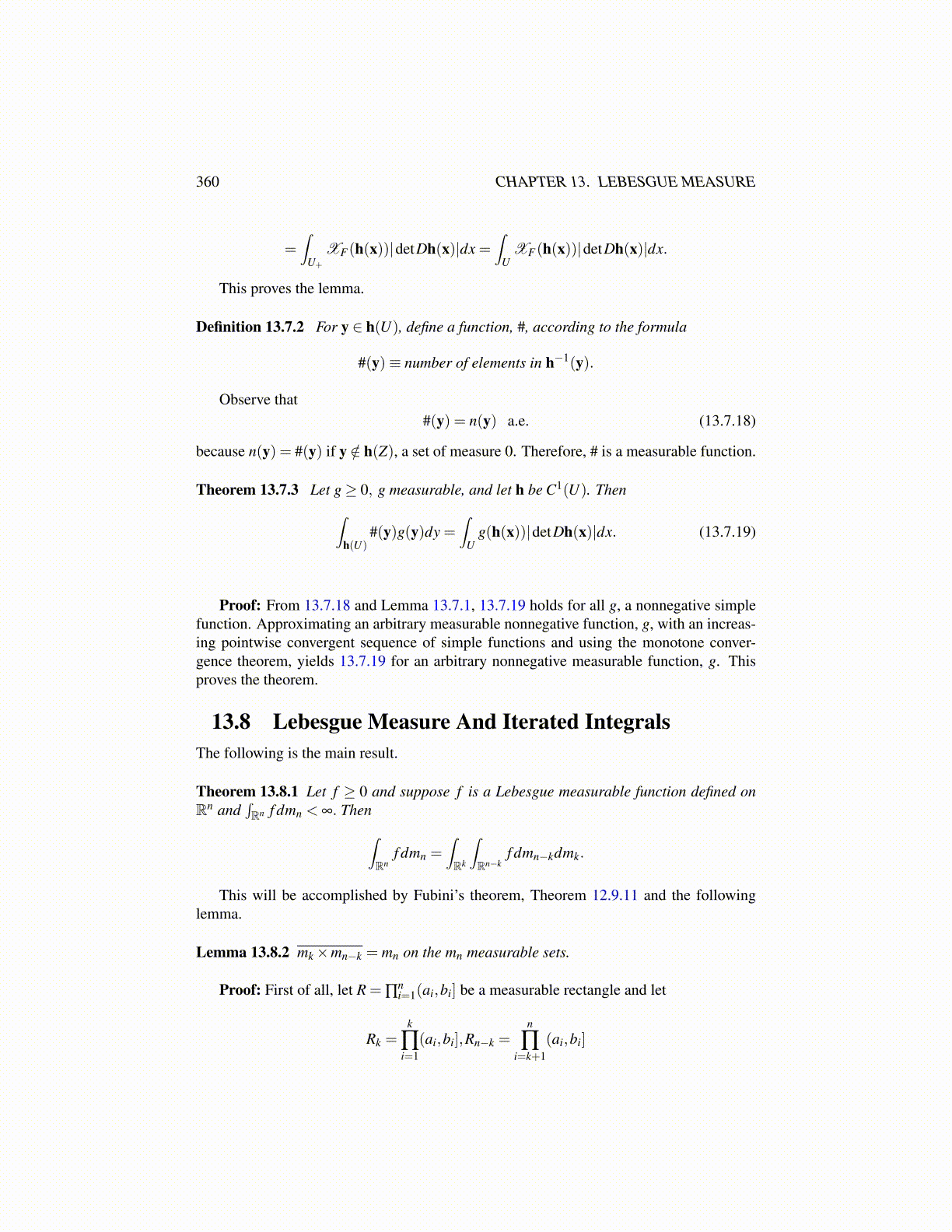
360 CHAPTER 13. LEBESGUE MEASURE
=∫
U+
XF(h(x))|detDh(x)|dx =∫
UXF(h(x))|detDh(x)|dx.
This proves the lemma.
Definition 13.7.2 For y ∈ h(U), define a function, #, according to the formula
#(y)≡ number of elements in h−1(y).
Observe that#(y) = n(y) a.e. (13.7.18)
because n(y) = #(y) if y /∈ h(Z), a set of measure 0. Therefore, # is a measurable function.
Theorem 13.7.3 Let g≥ 0, g measurable, and let h be C1(U). Then∫h(U)
#(y)g(y)dy =∫
Ug(h(x))|detDh(x)|dx. (13.7.19)
Proof: From 13.7.18 and Lemma 13.7.1, 13.7.19 holds for all g, a nonnegative simplefunction. Approximating an arbitrary measurable nonnegative function, g, with an increas-ing pointwise convergent sequence of simple functions and using the monotone conver-gence theorem, yields 13.7.19 for an arbitrary nonnegative measurable function, g. Thisproves the theorem.
13.8 Lebesgue Measure And Iterated IntegralsThe following is the main result.
Theorem 13.8.1 Let f ≥ 0 and suppose f is a Lebesgue measurable function defined onRn and
∫Rn f dmn < ∞. Then∫
Rnf dmn =
∫Rk
∫Rn−k
f dmn−kdmk.
This will be accomplished by Fubini’s theorem, Theorem 12.9.11 and the followinglemma.
Lemma 13.8.2 mk×mn−k = mn on the mn measurable sets.
Proof: First of all, let R = ∏ni=1(ai,bi] be a measurable rectangle and let
Rk =k
∏i=1
(ai,bi],Rn−k =n
∏i=k+1
(ai,bi]